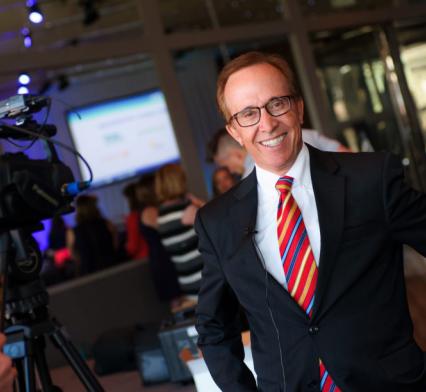Metro Denver a National Model for Economic Development
Last week, Colorado Public Radio ran a segment about the Metro Denver Economic Development Corporation’s (Metro Denver EDC) collaborative method of attracting companies and economic expansion to the region.
The piece recognized how instead of competing with each other, the communities in the region put on a united front to draw in new business to the entire Metro Denver area.
This cooperative process to achieving economic growth is radically different from how other communities across the nation approach economic development – and it’s this smart approach that works in Metro Denver’s favor in terms of expanding our economy.
At least, that’s the viewpoint Brookings fellow Jennifer Bradley takes in her new book titled, “The Metropolitan Revolution: How Cities and Metros are Fixing our Broken Politics and Fragile Economy," which dedicates an entire chapter to Metro Denver.
Accordingly to Bradley, many communities are spending tens of thousands of dollars or giving very expensive tax abatements to move a company just five or six miles down the road. This approach doesn’t bring new jobs to any region, but redistributes the capital that was already there.
Rather than trying to poach businesses from one jurisdiction to another, the groups that are a part of the Metro Denver EDC know that if a company comes, whether it locates in Denver or Aurora or Littleton or Louisville, the entire region benefits.
“If you want to create more growth, you have to put all of your assets on the table and say to a company, ‘look at all of the great things that we have here in greater Denver, come here and be a part of that,’” says Bradley. “That has been so successful that companies respect it, they are more eager to be in the Denver metropolitan area.”
Bradley also believes that companies are able to recognize that Metro Denver’s method of collaboration offers long-term advantages for their business models. A company is going to need good transportation for their employees and a workforce that is robust and well-trained, which generally comes from different jurisdictions working together.
Time and time again, we’ve seen how collaboration benefits our region from the implementation of FasTracks, to the Scientific and Cultural Facilities District, and even building relationships with site selectors. Each of these projects represents the teamwork and commitment our leaders have to making sure business gets done in Metro Denver.
We’re honored that thought leaders have taken note of just how effective this model can be by recommending that other communities look to Metro Denver as a national example for how regions should approach economic development. We are thankful for our partners in Metro Denver’s 70 counties, cities, and economic development groups that help to make this possible in our region each and every day.
